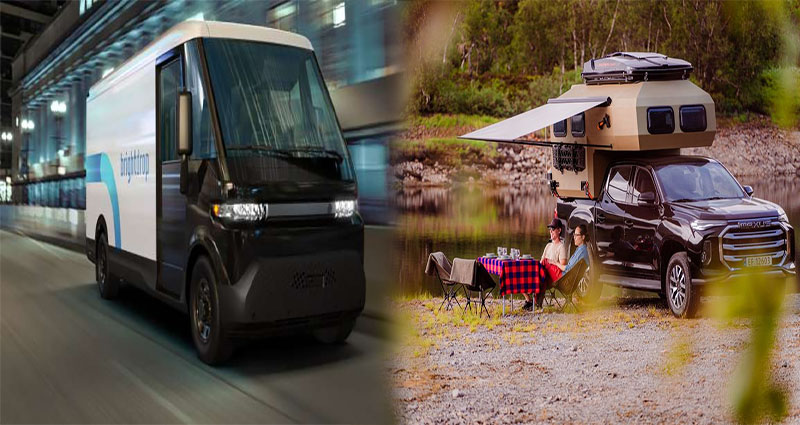As the world moves towards a greener and more sustainable future, the transportation industry is also embracing the shift to electric vehicles (EVs). While passenger cars have gained significant attention, electric trucks and vans are now emerging as a promising solution for reducing emissions and transforming commercial transportation. Let’s delve into the world of electric trucks and vans and explore their benefits and challenges.
What Are Electric Trucks and Vans?
Electric trucks and vans are commercial vehicles that are powered by electric motors, using battery packs as their primary source of energy. These vehicles offer the same advantages of electric cars, such as zero emissions and reduced operational costs, but are designed to meet the specific needs of commercial use, including cargo transport, delivery services, and utility operations.
The Benefits of Electric Trucks and Vans
- Reduced Emissions: One of the significant advantages of electric trucks and vans is their ability to eliminate tailpipe emissions. By replacing internal combustion engines with electric motors, these vehicles contribute to improved air quality and reduced greenhouse gas emissions, helping combat climate change.
- Lower Operational Costs: Electric trucks and vans have lower operating costs compared to their diesel or petrol counterparts. Electric vehicles have fewer moving parts, which results in reduced maintenance needs and decreased downtime for repairs. Additionally, electricity is often cheaper than fossil fuels, enabling operators to save on fuel costs.
- Quiet Operation: Electric trucks and vans produce less noise during operation compared to their combustion engine counterparts. This is particularly important for urban areas and delivery services that aim to reduce noise pollution and improve the quality of life for residents.
- Customization and Practicality: Electric trucks and vans can be designed and configured to meet specific commercial needs. From cargo space to specialized equipment installations, these vehicles can be customized to suit a wide range of industries and requirements.
The Challenges of Electric Trucks and Vans
- Limited Range and Charging Infrastructure: While electric trucks and vans have made significant progress in terms of range, they still generally have shorter driving ranges compared to their petrol or diesel counterparts. The availability of charging infrastructure, including fast-charging stations, is crucial for enabling long-haul and efficient operations.
- Initial Cost: Electric trucks and vans often have higher upfront costs compared to traditional commercial vehicles. This can pose challenges for small businesses or fleet operators looking to transition to electric vehicles. However, as technology advances and production scales up, the cost gap is expected to narrow.
- Charging Time: Charging electric trucks and vans can take significantly longer compared to refueling traditional vehicles. The time required to charge large battery packs can impact daily operations and require careful planning to ensure sufficient charging time and availability.
Electric trucks and vans are spearheading the green revolution in commercial transportation. With their ability to eliminate tailpipe emissions, lower operating costs, and offer practical customization options, electric trucks and vans are poised to transform the way goods are transported and services are delivered. As charging infrastructure continues to expand and battery technology improves, the challenges associated with range and charging time will be addressed. The transition to electric trucks and vans represents an exciting opportunity for businesses to contribute to a sustainable future while benefiting from reduced operating costs and improved efficiency.





